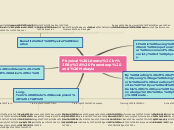Physical Literacy
By: Paramdeep and Makayla
It is having confidence and competence in your movement and a variety of physical activity.
By starting off at a young age doing sports and recreational activities, you will be able to have the knowledge to be physically literate.
Benefits of Physical Education
Achieve and maintain a
healthy body weight
Prevention of heart disease,
high blood pressure, diabetes,
stroke, and colon cancer
Improved fitness for
healthy, strong muscles
and bones
Reduced stress and
absence of depression
Improved self-image
Improved attention
span and mood
Reduced behavioural
issues and enhanced
academic performance
Skills + Confidence + Fun = Active for Life
Long-Term Athlete Development (LTAD)
Active Start
Fitness and movement skills
develop as fun part of daily life.
Ages 0 to 6
FUNdamentals
Learn the fundamentals of
movement skills and continue to
build motor skills. Play many sports.
Focus on the ABCs of athleticism:
agility, balance, coordination, and
speed.
Ages 6 to 9
Learning to Train
Learn overall sport skills. Acquire the
sport skills that will be the core focus of
athletic development. Play variety of sports
focusing on developing skills in 3 sports.
Ages 9 to 12
Training to Train
Build endurance, develop speed and
strength towards the end of this stage,
and further develop sport specific skills.
Ages 12 to 16
Training to Compete
Optimize fitness preparation and
sport, individual, and position specific
skills and learn to compete internationally.
Ages 16 to 23+
Training to Win
Podium performances, in other
words, winning international competitions
and events for a country or world
renowned teams.
Ages 19+
Active for Life
A smooth transition from an athlete's
competitive career to lifelong physical
activity and participation in sport.
All Ages
